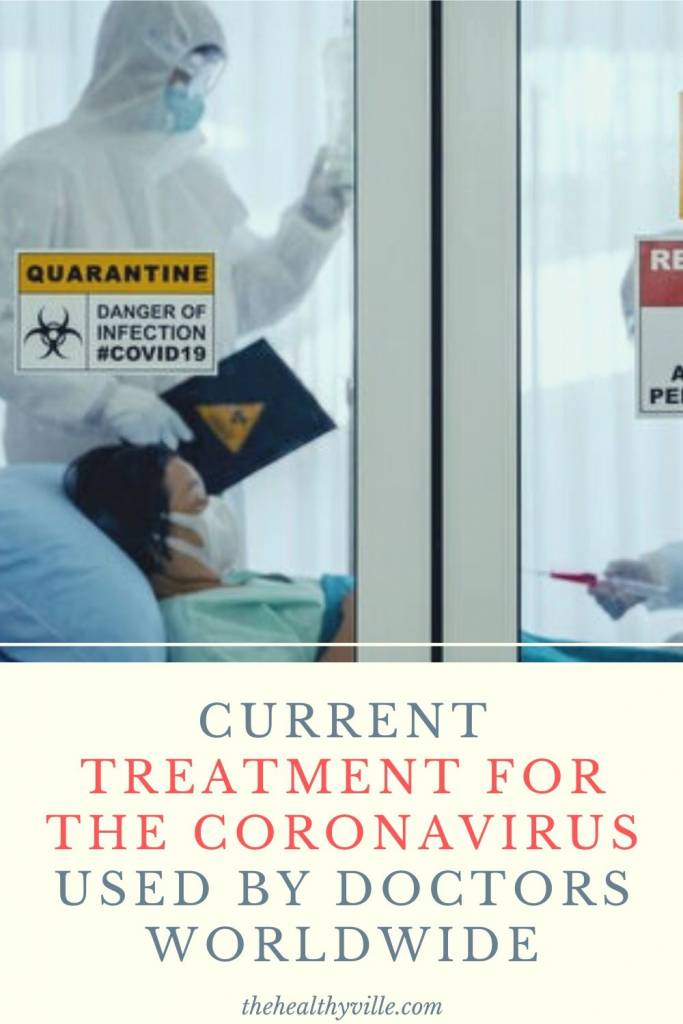Treatment for the coronavirus have been already implemented by doctors worldwide. Some have proven to be useful, while other not. Check them out.
There are no specific therapeutics for COVID-19, but there are some treatments in use for coronavirus that are still under investigation, however. Doctors reserve them for the critically ill patients.
The treatments in use for the coronavirus represent a reason for strong discussion. Both in the scientific world and in political spheres, interpretations of what these therapies can or cannot help intersect.
For sure, as with multiple viral diseases, there is no specific and timely treatment for coronavirus. What doctors use now is a drug – or a combination of several of them – that stops the virus from replicating.
Antibiotics are not useful in these cases, since they target bacteria; nor are anti-inflammatory drugs as specific treatments. What doctors promote are supportive measures for breathing and the symptoms of COVID-19.
In any case, there are treatments in use for the coronavirus that some protocols authorized in intensive therapies in different countries. There is still no drug for mass use at the onset of symptoms that doctors approve of.
Regulatory agencies for pharmaceuticals and laboratories are being more flexible than before in provisions and legislation. More rapid tests are allowed. The following are the current medicines for the treatment for the coronavirus doctors use across the world.
Hydroxychloroquine as a treatment for COVID-19
One of the first options discussed, as soon as the coronavirus pandemic started, was hydroxychloroquine. It is a classic medicine for the treatment of malaria.
Today it is one of the treatments in use for the coronavirus, especially for its anti-inflammatory component. Due to this characteristic, theories are that it would decrease the respiratory distress of COVID-19, one of the causes of death and requiring a respirator.
It is a cheap drug, and that is its availability advantage, but it also has many adverse effects. It generates headache, diarrhea, vomiting and skin rash.
The combination lopinavir / ritonavir as a treatment in use for the coronavirus
A therapeutic option being studied is the combination of the drugs lopinavir and ritonavir. They are antiretrovirals that doctors use in HIV schemes, considering that it is also an RNA virus, like SARS-CoV-2.
This combination has already been studied in previous outbreaks of coronavirus, which were acute and severe respiratory syndrome (SARS) and Middle East respiratory syndrome (MERS). The results there were promising, leading researchers to assume that it should be effective now.
However, the tests run so far are not as positive as before. But in the absence of better and available alternatives, several countries have protocolized its use in intensive care.
It is not a treatment in use for all coronavirus patients, but it is for those who have a severe prognosis due to their symptoms, age, or comorbidities. In those cases doctors combine it with interferon.
Remdesevir, the most promising
One treatment in use for coronavirus that has a high chance of being more successful than the rest is remdesevir. It was also tested in the SARS and MERS epidemics of the past 20 years.
The drug is a derivative of an experiment that was carried out 10 years ago to find a treatment for Ebola. Subsequently, its efficacy was verified for other viruses, including some coronaviruses. In the United States, it has already been used in two patients, which improved, but it is not enough to consider its efficacy.
What does not favor it is that it only exists for intravenous application. This would imply performing the treatment in a hospital stay, or at home with coordinated nursing care.
Which treatment for the coronavirus to implement best?
Currently, when a patient gets the COVID-19 diagnosis, what starts is a basic and supportive treatment protocol. If the symptoms are mild, the patient is in isolation at home and complies with the usual measures for a flu-like illness.
If the case is moderate, it may require hospitalization, in which case the patients follows hospital protocols, but generally without the use of antiretrovirals. Except for specific cases that have the medical associations and ministries of health endorsement, in which they try using a drug to help the patient.
What doctors propose now for the treatment of intensive care patients is to combine the available alternatives due to the severity of the symptoms that appear. Each national health secretariat has developed specific guidelines for their health teams to choose medications based on local availability.
Don’t forget to SHARE the current treatment for the coronavirus used across the world with your friends and family on your social networks!

